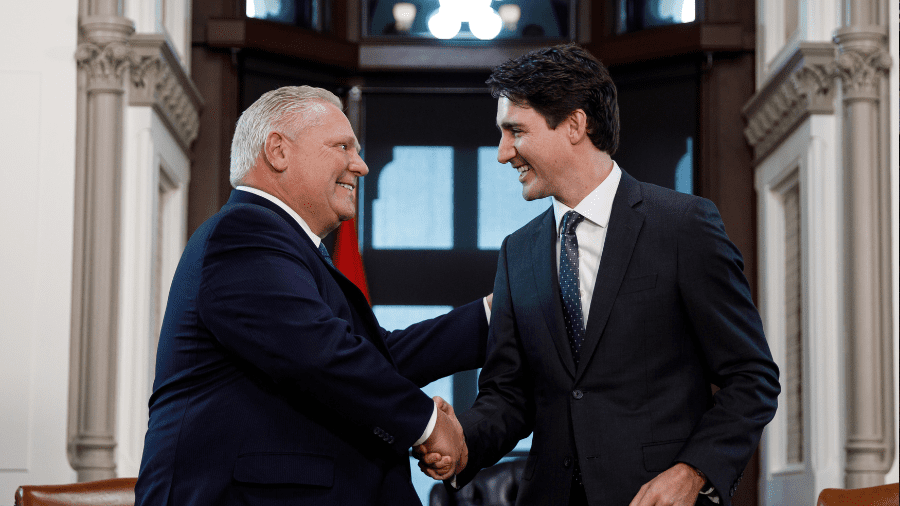This article originally appeared in the National Post.
By Aaron Wudrick, June 2, 2023
Canada’s long, sordid history of corporate welfare debacles should have been warning enough.
In this country, “paying to play” in a given industry — the polite euphemism preferred by its advocates — has never been a matter of buying a one-off admission ticket to Aerospaceworld or Automotiveland, freeing our economy to run about and hop on unlimited rides with exciting names like The Great Canadian Spinoff Effect.
Instead, paying to play has inevitably meant recurring demands to pay even more, just to keep playing. A cynic might call it a genteel protection racket, except in this case it was the governments forking out the money who actually invited the heavies into the neighbourhood in the first place.
Unfortunately the flavour du jour of corporate welfare — essentially a potent marriage of fervent climate-change-warriorism with the tried-and-true political penchant for ribbon-cutting — has made things exponentially worse.
Once upon a time, a big handout would at least buy you some time; many years would pass before a recipient came back, cap in hand. But as shown by Stellantis’ recent decision to halt construction of its Windsor, Ont. electric vehicle battery factory, after already getting about $1 billion from the Ontario and federal governments, the hostage negotiations are now starting before the jobs even materialize. Some analysts suggest that new negotiations, currently underway, between the federal and provincial governments and Stellantis could cost taxpayers as much as $19 billion in new funding.
The catalyst for Stellantis’ brazen move appears to be the federal and Ontario governments’ decision in April to commit to an eye-watering $13 billion package of subsidies to Volkswagen for its own EV battery factory in St.Thomas, Ont.
You have to wonder whether it even occurred to anyone in the Trudeau or Ford government that the lucrative Volkswagen package might come back to undermine the Stellantis deal struck a year earlier. The fact that both governments seemed to be caught completely off guard — forced into a humiliating public ritual of finger-pointing, and ultimately offering up a deal even sweeter than the Volkswagen handout — suggests the answer is no.
Perhaps they were putting too much stock in Stellantis’ commitment to build the factory. But it’s hard to know whether there’s a loophole that permits Stellantis to duck out, since (surprise!) the actual terms of the deal were withheld from the public due to “commercial sensitivity” — a phrase which should always ring alarm bells since it inevitably trumps taxpayers’ rights to know how their own money is being spent.
That said, it’s hard to blame Stellantis for insisting on a level playing field, yet another reason why it was a colossal mistake for Trudeau and Ford to set off a subsidy bidding war. Of course they insisted that’s not what was happening; Trudeau even made a point of publicly warning other companies not to expect the same deal as Volkswagen. Yet here we are barely a month later, setting the table for a generous meal of crow and humble pie.
Besides achieving a massive payday for Stellantis, the company’s aggressive strategy also illustrates some broader lessons that will no doubt be lost on those still intoxicated by the delusion of bringing large-scale industrial policy back into fashion:
- that “designing” economies is beyond the capacity or competence of governments;
- that even obvious unintended consequences will escape their notice;
- and that the real result of these effects is considerable distortion and damage to our economy — all paid for at enormous cost to the public purse.
The only implicit expression of humility we are likely to see from an upsized handout for Stellantis will be the absence of another backslapping photo-op or stream of sycophantic stakeholder press releases. Rather than repudiate these destructive policies, Justin Trudeau and Doug Ford are doubling down on their colossal mistake.
Their embarrassing capitulation to pay billions more in ransom money will only embolden other companies to do the same.
Aaron Wudrick is director of the domestic policy program at the Macdonald-Laurier Institute.






